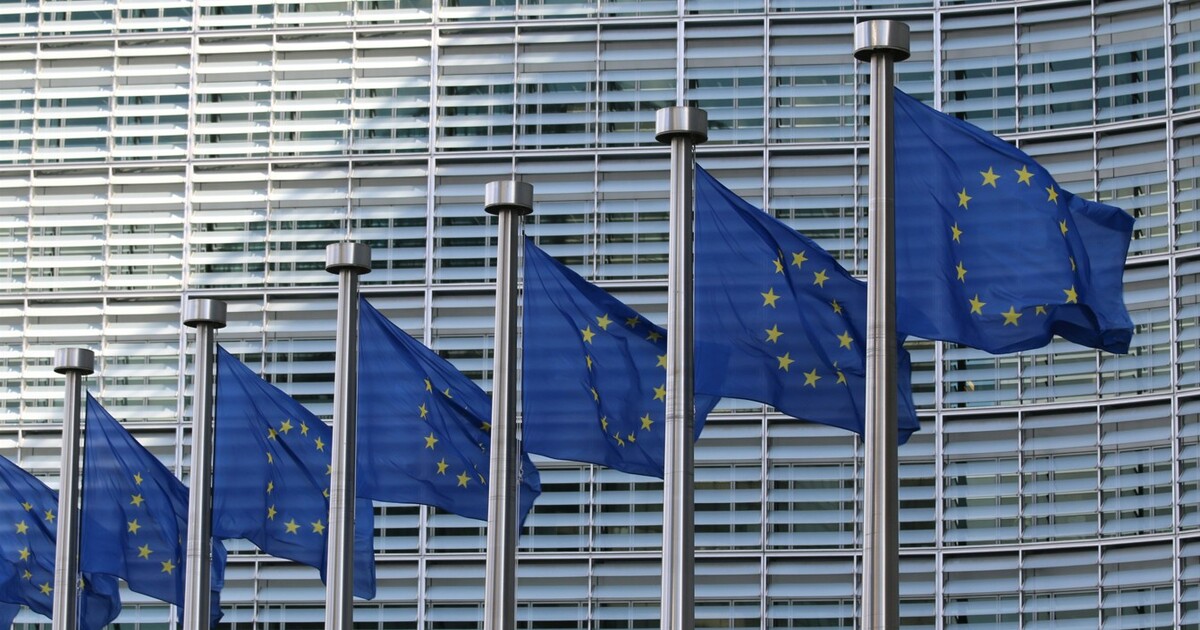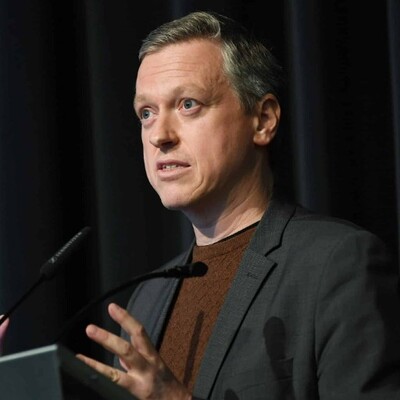Europe and the New World (Dis)Order
Germany and Europe face a period of strategic uncertainty. How to use it constructively?
May 22, 2025

A Strategic Intervention Paper (SIP) from the Global Ideas Center
You may quote from this text, provided you mention the name of the author and reference it as a new Strategic Intervention Paper (SIP) published by the Global Ideas Center in Berlin on The Globalist.
The recent geopolitical shifts have pushed Europe into a phase of structural uncertainty. At the same time, they offer an unusual degree of analytical clarity — something rare in international politics.
The U.S. government’s decision to conclude a comprehensive raw materials agreement with Ukraine can be seen as a turning point in transatlantic relations.
The United States’ privileged access to critical Ukrainian resources and the establishment of a joint reconstruction fund raise fundamental questions about Europe’s role in the global order.
Needed: European strategic adjustment
This development marks a break with decades of U.S.-led security framing in Europe. For Germany and the European Union, it creates not only a need for strategic adjustment, but also a new space for agency.
The continent is being called upon to articulate and defend its strategic interests independently. This shift is not merely foreign policy in nature — it touches the very core of Europe’s self-conception.
Goodbye U.S.: Identity and sovereignty
For Germany in particular, the current geopolitical rupture is accompanied by a profound emotional dimension. For decades, the United States was not only a guarantor of security, but also a cultural and normative point of reference.
For the young Federal Republic, the United States embodied the Western model: Economic modernization, liberal democracy and technological progress.
From the Marshall Plan and the founding of NATO to deep economic integration into Western markets, the transatlantic bond was not only foundational — it was identity-shaping.
This historical framework became so self-evident that its possible dissolution was long repressed. The United States was regarded as a reliable partner, even in times of political disagreement.
But the structural shift in U.S. foreign policy — evident in its focus on the Indo-Pacific, increasing domestic polarization and growing aversion to multilateral commitments — makes it clear: Europe, and especially Germany, can no longer rely on this transatlantic certainty.
A cultural, symbolic and security vacuum
The loss of this historical orientation creates a vacuum — felt not only in terms of security, but also culturally and symbolically.
The perceived U.S. retreat clashes with a political culture in Germany shaped since 1949 by the principle of “Westbindung,” or alignment with the West.
New normative and strategic reference points must now be developed. Yet, this moment of destabilization — like any process of gaining autonomy — can also be seen as a productive crisis. It offers the opportunity to redefine Europe’s role within the international system.
The central question, therefore, is: What does it mean today to be European — in normative, political and strategic terms — in a world that is increasingly multipolar, conflictual and accelerated?
Responsibility not as a burden, but a capacity to shape
It is not merely about foreign policy self-confidence, but about a deeper political maturity. Germany, long oscillating between economic leadership and military restraint, stands as a prime example of this challenge. The country must learn to understand responsibility not as a burden, but as a capacity to shape.
Such a transformation requires not only new foreign policy tools but also a broad societal debate about Europe’s global role.
The narrative of “Europe as a peace project” must be supplemented by a realistic yet value-driven conception of European agency. Without strategic orientation, Europe’s capacity for self-assurance in global competition is at risk.
Changing track: Germany’s new direction
The recent economic and fiscal policy decisions — backed by a constitutional majority of CDU/CSU, SPD and the Greens in the Bundestag — mark a fundamental turning point in German regulatory policy.
At their core are the partial loosening of the debt brake and the announcement of major investments in key areas of public infrastructure: Transportation, energy, digitalization, education and, not least, military defense capabilities.
This course correction not only breaks with the long-dominant austerity paradigm but also signals a new understanding of state responsibility in an increasingly complex geopolitical and economic environment.
Germany is beginning to actively define its role
This step should therefore not be seen as a mere technical adjustment — it carries strategic weight. It signals that Germany is beginning to actively define its role within the international system.
Responses from business and politics were accordingly significant. International observers and European partners alike interpreted the policy shift as a sign of increased capacity for action and geopolitical seriousness.
Domestically, this development amounts to a paradigm shift in economic governance away from a state model primarily focused on balanced budgets toward an investment-oriented state acting as a driver of transformation and resilience.
The planned expenditures for decarbonization, digital infrastructure, strategic technologies and the modernization of the armed forces are not consumption but part of a long-term stability and precautionary policy.
Securing future viability
In times of overlapping crises, the priority is to reduce structural vulnerabilities and secure future viability.
This reorientation also points to the potential for a renewed German leadership role within the European context. Germany can become a catalyst for a continent-wide strategic shift — toward a Europe that defines and defends its strategic interests collectively.
But any such ambition must be cooperative from the outset. Without clear integration into European decision-making — through joint investment mechanisms or coordinated industrial strategies — national initiatives risk generating mistrust and fragmentation.
A new German role can only be integrative if accompanied by a willingness to engage in political coordination, pool resources and pursue institutional reform.
The European Green Deal, discussions about a European Security Union and debates over reforming the Stability and Growth Pact all offer starting points for such a coordinated strategy.
What matters is that Germany provides not only capacity but also political initiative — guided by a spirit of shared responsibility for Europe’s future.
Strategic autonomy: Preconditions and challenges
The concept of “strategic autonomy” has long featured in EU political discourse, yet its implementation remains in its infancy.
Despite substantial defense spending, the European Union still lacks binding structures for unified action: A European intervention force, coordinated arms policy, joint intelligence frameworks and a coherent cyber defense strategy are all overdue.
At the same time, technological initiatives — such as the digital euro and European space policy — offer important momentum toward greater economic and infrastructural independence.
Countering hybrid threats
However, the notion of autonomy remains inadequate if thought of solely in institutional terms. One of the most pressing challenges lies in countering hybrid threats, above all those posed by Russia.
The systematic destabilization of European democracies, often via Russian disinformation campaigns, cyberattacks and infrastructure sabotage, is no longer peripheral.
The “Doppelgänger” campaign, which involved fake media outlets designed to polarize and erode public trust, is a prominent example of digital interference aimed at disrupting elections and shaping public opinion.
According to German authorities, the threat posed by Russian cyber operations and targeted influence efforts is so significant that it must be regarded as a permanent security reality.
In addition, there have been physical attacks on critical infrastructure such as rail lines, communication networks and energy supplies. These covert operations are part of a long-term strategy to weaken Europe from within and paralyze decision-making processes.
Hybrid warfare is no longer a theoretical threat — it is unfolding in the heart of Europe. Strategic autonomy, therefore, must also mean protecting against invisible attacks, strengthening democratic resilience and developing a European security culture that treats disinformation as seriously as missile defense.
Loss and transformation: A sociological interpretation
The current geopolitical and societal transformation can also be understood as the expression of a deeper civilizational pattern — one that reaches far beyond daily political developments.
German sociologist Andreas Reckwitz argues that modernization has a dual face: It generates progress, innovation and acceleration, while simultaneously producing systematic losses of stability, continuity and cultural embeddedness.
This diagnosis applies especially to today’s shifting global order. The relative certainties secured for decades by stable alliances, economic interdependence and international norms are dissolving.
A weakening rules-based world order
The Western framework that once guaranteed a rules-based world order appears weakened in its binding force. What is being lost is not only material or institutional — it also affects shared orientation and a sense of political reliability.
In response, Reckwitz calls for a “repair of modernity” — not a retreat into nostalgia, but a forward-looking search for productive strategies to manage uncertainty.
The task is not to cling to supposed past certainties, but to build structural adaptability. Resilience thus becomes the central category of modern governance.
For Europe, this means moving beyond efforts to reconstruct Cold War-era blocs and instead working toward a multipolar, cooperative order grounded in diversity, flexibility and institutions capable of learning.
Adaptability becomes a new geopolitical resource. This imperative touches not only security and economic policy, but also education, culture and social cohesion.
Democracy must be resilient
A resilient democracy must be capable of withstanding fragmentation and dissent without losing its integrative force.
Resilience, then, does not simply replace classical notions of security — it transforms the very concept. It is not defined by the absence of crises, but by the ability to respond to them productively.
In this light, loss is not merely a negative condition, but a starting point for strategic learning, institutional innovation and the renewal of Europe’s collective self-understanding.
Future readiness: Navigating a new European order
In light of the profound disruptions reshaping the international order, Europe faces a series of pressing strategic and normative questions.
These questions touch not only the institutional architecture of the European Union, but also the political culture, economic practices and collective identity of its member states.
In a world marked by uncertainty, shifting power dynamics and ecological constraints, Europe’s ability to position itself — and the kind of political intelligence it applies — will be decisive.
Three central guiding questions emerge:
1. How can Germany shape its new role within the EU without being perceived as dominant?
Germany is widely seen as the EU’s economic anchor, but geopolitical leadership demands more than fiscal strength.
It requires a cooperative and diplomatically sensitive leadership style that builds trust and reinforces integration rather than hindering it. The key challenge lies in aligning national interests with European coherence.
2. How can Europe secure economic sovereignty without falling into protectionist patterns?
In an increasingly decoupled global economy — marked by technology races, disrupted supply chains and geopolitical sanctions — economic resilience becomes a matter of security.
Building strategic industries (e.g., semiconductors, green technologies) must occur within a rules-based and open global system that safeguards European interests without undermining international cooperation.
3. How can societies deal with the loss of familiar orders without regressing into reactionary responses?
The erosion of social, political and cultural certainties demands a political style that communicates complexity, strengthens resilience and offers new forms of inclusion.
A “democracy of resilience” would be one that does not suppress tensions, but processes them institutionally and negotiates them culturally.
Beyond these guiding questions, other strategic fields must also move to the top of the political agenda:
– Digital democracy under the conditions of artificial intelligence: How can democratic deliberation and decision-making be protected from manipulation, algorithmic bias and disinformation?
– Ecological transformation under geopolitical pressure: How can Europe uphold the Green Deal amid energy scarcity and global competition? What new foreign policy alliances might emerge through ecological cooperation?
– Rethinking growth: In light of planetary boundaries, Europe needs economic thinking beyond GDP. Indicators of well-being, circular economy strategies and social innovation must become part of the economic mainstream.
Addressing these issues requires an interdisciplinary and conflict-tolerant political style. What is needed are translation skills between science, policy and public discourse.
Spaces for normative debate, and the ability to treat political difference not as a threat but as a cornerstone of democratic vitality.
In short: Europe’s future will not be determined solely by treaties and institutions — but by how boldly and wisely it confronts the great questions of our time.
Propositions for debate
1. The Western geopolitical order is historical — its return is unlikely.
The transatlantic consensus was the product of a specific historical moment. In a multipolar world shaped by competing models of order, it is improbable that this constellation will re-emerge in its previous form. Europe must prepare for new geopolitical realities.
2. Strategic autonomy is a democratic project, not a technocratic one.
Autonomy involves more than military capability or industrial self-reliance — it also means the ability to define norms independently. This requires transparent and legitimate decision-making processes that ensure political participation.
3. Germany’s new responsibility begins with embedded leadership.
Leadership without a spirit of partnership leads to isolation. Germany’s role in Europe can only be constructive if tied to inclusive and cooperative formats that respect the sovereignty of smaller member states.
4. Loss is not a deficit, but a starting point for collective self-understanding.
In modernity, change is the norm. The erosion of old orders creates space for new meanings. Productively dealing with loss requires cultural openness and historical reflection.
5. Resilience is the paradigm of European security policy.
Security in the 21st century cannot be conceived in purely territorial terms. It must include digital infrastructure, social cohesion, ecological stability and economic robustness.
6. Those who preserve outdated certainties block new paths for action.
Clinging to legacy structures obscures opportunities. Political creativity emerges only when uncertainty is seen not as catastrophe but as a space for possibility.
7. Autonomy requires cultural storytelling, not just institutional reform.
Political self-assertion draws strength from narratives that provide identity and orientation. Europe’s strategic independence depends on shared stories that foster solidarity while integrating divergent interests.
8. Strategic clarity is a prerequisite for solidarity.
Only those who articulate their interests clearly can cooperate effectively. Europe must stop conflating normative rhetoric with strategic indecision.
9. Future-readiness demands conflict tolerance.
In pluralistic societies, dissent is inevitable. The ability to process conflict institutionally and productively is a key resource for both democratic resilience and geopolitical agency.
Takeaways
Europe is being called upon to articulate and defend its strategic interests independently. This shift is not merely foreign policy in nature — it touches the very core of Europe’s self-conception.
For Germany, the United States was not only a guarantor of security, but also a cultural and normative point of reference.
This moment of destabilization — like any process of gaining autonomy — can also be seen as a productive crisis. It offers the opportunity to redefine Europe's role within the international system.
Germany can become a catalyst for a continent-wide strategic shift — toward a Europe that defines and defends its strategic interests collectively. But any such ambition must be cooperative from the outset.
The systematic destabilization of European democracies, often via Russian disinformation campaigns, cyberattacks and infrastructure sabotage, is no longer peripheral.
The task is not to cling to supposed past certainties, but to build structural adaptability. Resilience thus becomes the central category of modern governance.
A Strategic Intervention Paper (SIP) from the Global Ideas Center
You may quote from this text, provided you mention the name of the author and reference it as a new Strategic Intervention Paper (SIP) published by the Global Ideas Center in Berlin on The Globalist.


